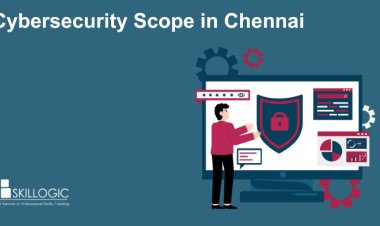What is Hacking? What are the Kinds of Hackers out there?

In the previous two decades, technology has advanced at a breakneck pace, delivering new inventions and tools to assist us to manage our tech-driven environment. While much technological progress has resulted in technologies that make it easier for us to work, live, and manage modern life, it has also opened up a growing window of security flaws that fraudsters love to exploit.
But, what exactly is hacking? And how did ordinary internet users, even from the protection of their own homes, come to fear for their privacy and security?
Hacking is an initiative that seeks to exploit and gain unauthorised access to a computer system, device, or network without the owner’s permission. Instead of being a required component of hacking, causing harm is occasionally an unexpected outcome.
Who exactly is a hacker?
A hacker is someone who gets to the bottom of a technological problem by using a computer, networking, or other skills. A hacker employs their skills to obtain unauthorised access to computer systems or networks in order to commit crimes.
A common example, a hacker may steal information in order to hurt people through identity theft or bring down a system and, in many circumstances, hold it hostage in exchange for a ransom.
Refer To The Article To Know How Much Does It Cost to Learn Ethical Hacking in 2022?
Who is a Hacker?
Hacking is, at its core, about uncontrolled creativity, brave innovation, and the audacity required to think outside the box. However, not all hackers are content with hacking for the sake of hacking.
1.White Hat Hackers
Unlike their black-hatted colleagues, white hat hackers do all of their hacking in the open. White hat hackers, on the other hand, are diametrically opposed to black hat hackers.
Penetration testing is a process in which companies pay white hat hackers to purposefully breach their systems and software in order to identify any vulnerabilities or security problems. Companies can increase their security in this way before a black hat hacker succeeds. That’s why ethical hacking is referred to as white hat hacking. White hat hackers stand by the government’s norms and regulations. Ethical hackers are popularly called white hat hackers.
2. Black Hat Hackers
A shady cybercriminal is referred to as a black hat hacker. They’re the ones who break security mechanisms in order to obtain unauthorised access to a computer or network. If a black hat hacker identifies a security flaw, they will either exploit it themselves or inform other hackers about it, usually for a fee.
3. Grey Hat Hackers
Grey hat hackers work on the outskirts of the law. The hack with good motives most of the time, but they may not have approached the hack in an entirely ethical hacking or legal manner.
4. Scripts Kiddies
It’s an infamous saying that half-truths are never secure. The Script Kiddies are a crew of newcomers to the hacking scene. They use scripts written by other hackers to try to hack the system. They try to get hold of computers, networks, or websites. The main motive of the hacking is to get their peers’ attention. Children that aren’t fully aware of the hacking method are referred to as Script Kiddies.
5. Green Hat Hackers
Green hat hackers are still learning the game when it comes to hacking. They differ from the Script Kiddies in that their objectives are different. Working hard and learning everything there is to know about hacking is the goal. They’re casting for opportunities to learn from seasoned hackers.
6. Blue Hat Hackers
While some believe that a Blue Hat Hacker is someone who has little to no skill or interest in hacking and is only interested in getting revenge for a hacking incident that has caused him some form of distress, another interpretation popular in the Microsoft world is that a Blue Hat Hacker is someone who is hired to find flaws in unreleased products and services.
Also Read: What is the Disparity between Ethical and Unethical Hacking?
7. Red Hat Hackers
The purpose of the red hat hackers is to stop the onslaught of the black hat hackers. The only difference between red hat and white hat hackers is that they both have the same goal in mind when they hack. Red hat hackers are harsh when dealing with black hat hackers or fighting malware. The red hat hackers are still at work, and the system may need to be overhauled entirely.
8. Whistle Blower
This type of hacker is someone who works for a firm and has access to confidential information. The disclosure could be motivated by a personal grudge against the organisation, or the individual could have discovered illegal activity within the company. The purpose of the exposure is determined by the reason for the exposure. People who reveal wrongdoing are known as whistleblowers.
9. Hacktivists
Someone who hacks into government networks and systems in order to bring political and social issues to the public’s attention.
The internet is a goldmine of information. Individuals with a sharp intellect can learn and adapt to them fast. Hackers are distinguished by their motivation for hacking. Hackers are dangerous because they use their expertise to harm people or countries, or for personal gain. The forms of hacking assaults vary depending on the firm. The hackers’ ability to find and enter the security system’s weakness determines the severity and type of attack. Businesses and governments have found it difficult to stay current as a result of this.
Businesses are investing in Ethical Hacking Professionals in order to protect their data and sensitive information from malicious hackers. Software flaws and vulnerabilities would go unreported if it weren’t for ethical hackers.
In today’s world, ethical hackers are coveted, as seen by the demand for trained specialists in the field of hacking. Certified Ethical Hackers earn a lot of money and have a lot of reputation and credibility to maintain. For a few years, the field has been in a high market and the need is only projected to grow in the coming months. EC-Council and IIFIS have given accreditation to SKILLOGIC’s ethical hacking courses.
SKILLOGIC is providing most comprehensive cyber security course accredited from EC-Council, NASSCOM FutureSkills and IIFIS.
Ethical Hacking Course Introduction
Biggest Cyber Attacks in the World

 admin
admin 



